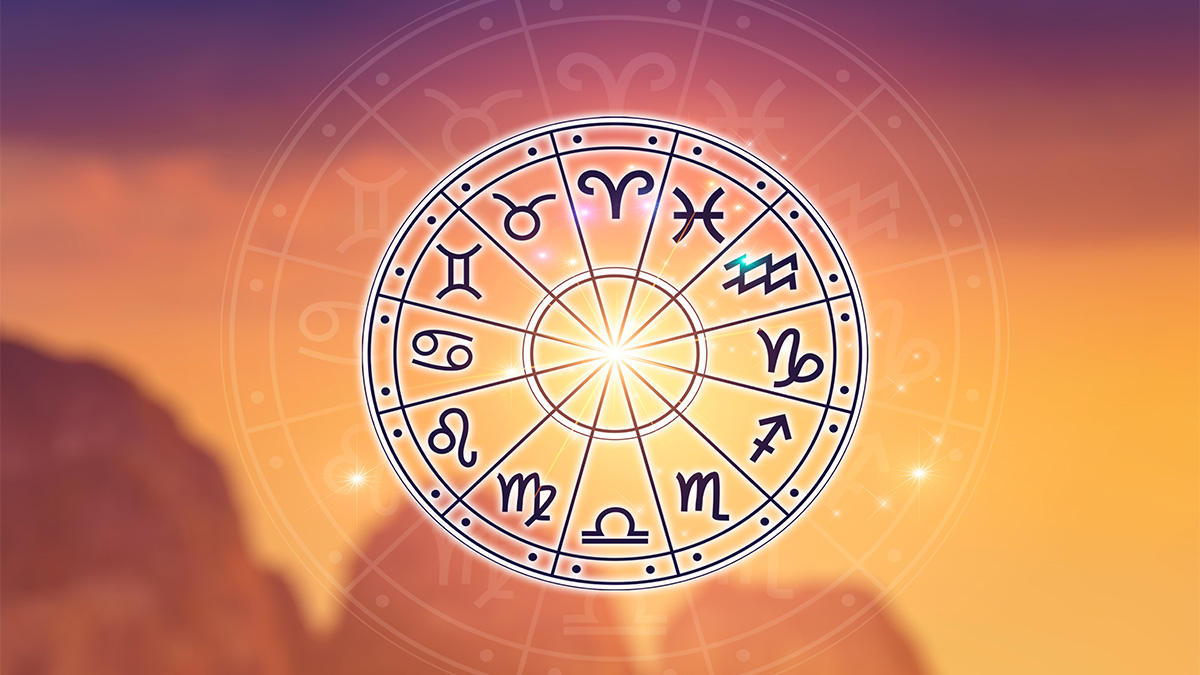Health
Tina Turner Died Today at 83 — Here Are 6 Pieces of Her Wisdom That Will Live On

Tina Turner, legendary singer, actress, dancer, and author, passed away today, May 24, at age 83 after battling a longtime illness.
Often called the Queen of Rock and Roll for her explosive energy and talent, Tina was no stranger to glitz, glam, and accolades. She was, as one of her hit songs (that happened to be one of Princess Diana’s favorites) states, “simply the best.” But despite her celebrity status and success — having sold over 150 million records and garnered 12 Grammy Awards — she knew what it meant to endure hardships, like heartbreak, loss, and abuse. Last year, in an exclusive interview with Woman’s World, she shared some important tips for a life well-lived. And though she’s no longer with us, her wisdom will live on. Keep reading to see Tina’s advice for filling your life with joy, positivity, and love.
1. You are worthy.
“If there is one thing you should remember, it’s that you are worthy of all the love and joy in the world,” Tina declared. “I think my positive attitude is what has kept me going strong throughout my life. I try to focus on the here and now, and I don’t compare myself to others—I just try to become a better version of myself each day. Happiness is actually found within, and when you realize that and work to spread kindness to all living beings, that goodness will come back to you again and again!”
2. Embrace what you can control.
“The first few decades of my life, I was in a storm of suffering,” Tina said. “I was trapped in cycles of negativity, but I found faith, and it saved my life. I realized that although I might not have control over what came my way, I did have control over how I responded to it. When you can see yourself and your life clearly, you can transform any situation.”
3. Discover joy in lifting others.
“I’m a firm believer that when we help uplift others, we uplift ourselves,” Tina said. “Showing compassion allows us to connect on a different emotional and spiritual level. It can take us to a place where our differences fade. It’s time for the world to move past divisions and into deeper connections. We must work together to solve problems. I’m hopeful that one day, we will all come together to heal the world.”
4. Declare your life’s mission statement.
“When I was going through a hard time, my friends Herbie Hancock and Wayne Shorter took me and my sons in and helped me get back on my feet,” Tina shared. “Wayne suggested I write a mission statement to set a direction for my goals, and it helped me envision my future and taught me to keep dreaming.”
5. Feed your soul with outdoor time.
“I’ve always felt embraced by love when I’m surrounded by nature, and I just love to soak it up,” Tina said. “In my childhood, especially on the hardest days, I would retreat to Mother Nature. My natural environment was the only place I always enjoyed an awareness of truly belonging, and I’ve carried that feeling with me throughout all my years.”
6. Enjoy life’s most simple things.
“There are so many ways to nourish your soul,” Tina revealed. “Music is one of them: It rejuvenates me. … Simple pleasures can bring so much joy!”
So what does love have to do with it? Pretty much everything, as evidenced by Tina Turner’s life and wisdom. Read her 2020 book, Happiness Becomes You: A Guide to Changing Your Life for Good (Buy from Amazon, $15.19) for more of her insight. We miss her already, and we’re thankful to have been blessed with her tremendous talent.
Woman’s World aims to feature only the best products and services. We update when possible, but deals expire and prices can change. If you buy something via one of our links, we may earn a commission.
Questions? Reach us at shop@womansworld.com.

Health
8 of the biggest health stories from this week in case you missed them

Fox News Digital publishes a range of health pieces every day of the week to keep you up-to-date on the most important wellness news.
Cutting-edge medical research, breakthrough medications, mental health challenges, personal medical dramas and more are all covered.
In case you missed them, here are a few of the biggest health stories from this week.
CLICK HERE TO SIGN UP FOR OUR HEALTH NEWSLETTER
As always, you can see a full list of recent health pieces at http://www.foxnews/health.
Check out these eight key stories.
1. Certain supplements could increase heart attack, stroke risk
A new study suggests that taking a popular form of supplements could make a certain group of people more susceptible to experiencing heart disease and strokes.
A cardiologist and nutritionist weighed in. Click here to get the story.
“Further studies are needed to determine the precise mechanisms for the development and prognosis of cardiovascular disease events with regular use of fish oil supplements,” the authors of a new study wrote. (iStock)
2. Half of Americans are ill-equipped to help in a crisis
Only 51% of polled Americans know how to perform hands-only CPR, and only 49% could assist with serious bleeding.
ER doctors shared tips on how people can be better prepared. Click here to get the story.

“When you’re trained in these lifesaving skills, you’ll know how to recognize the signs that someone needs help and buy time until the [first] responders can get there,” a doctor said. (iStock)
3. Many patients taken off life support may have survived, study suggests
Families may want to wait before making the “irreversible decision” to take loved ones off life support after a traumatic brain injury, some doctors and researchers say. Click here to get the story.

Many patients who died after traumatic brain injuries may have survived and recovered if their families had waited to take them off life support, a new study has found. (iStock)
4. Three women share their best longevity tips
For Women’s Health Month, three mothers and grandmothers — ages 41, 55 and 64 — revealed how they’re defying their chronological ages. Click here to get the story.

Left to right, Julie Gibson Clark, Amy Hardison and Lil Eskey all shared the lifestyle habits that are helping them slow down biological aging. (James Lee, Amy Hardison, Lil Eskey)
5. Lupus expert debunks 7 common myths
Dr. Brooke Goldner of Cornell University, who lives with lupus, has dedicated her life to raising awareness of the disease. She shared the truths behind some of the biggest misconceptions. Click here to get the story.

Dr. Brooke Goldner, a board-certified medical doctor and an autoimmune professor at Cornell University, pictured at right, is committed to debunking lupus myths and misconceptions. (iStock/Dr. Brooke Goldner)
6. Heart attack risk could spike during election season
Research from Massachusetts General Hospital found that people who have specific genetic traits, paired with anxiety or depression, are at a “significantly higher heart attack risk” during periods of social or political stress. Click here to get the story.

“The mind-heart connection is strong, and this study highlights that not only our bodies, but also our minds, need rest and care,” a doctor said. (Lorenzo Bevilaqua/ABC via Getty Images; iStock)
7. Disrupted sleep, plus nightmares, could be linked to autoimmune diseases
Those who experience vivid nightmares and odd hallucinations might be at a higher risk of lupus, a new study suggests. Researchers and doctors revealed the link. Click here to get the story.

The study looked at not only the issues surrounding sleep, but also when the issues for participants began. (iStock)
8. Paralyzed patients could find new hope in spinal cord stimulation
Ninety percent of paralyzed patients regained strength or function in their upper limbs after receiving an experimental therapy, a new study found. Experts weighed in on why this could be a “game-changer” for some patients. Click here to get the story.

Some of this week’s top health stories include supplement risks, emergency skills, sleep disorder ramifications and more. (iStock)
For more Health articles, visit www.foxnews.com/health.
Health
Horoscope: What’s in Store for You May 20 — May 26, 2024?

Sign Up
Create a free account to access exclusive content, play games, solve puzzles, test your pop-culture knowledge and receive special offers.
Already have an account? Login
Forgot your password?
Get back to the Sign In
Use left and right arrow keys to navigate between menu items.
Use escape to exit the menu.
Health
Disrupted sleep, plus nightmares could be linked to autoimmune diseases, experts say

Those who experience vivid nightmares and odd hallucinations might have an underlying autoimmune disease, a new study suggests.
An international research team led by scientists at the University of Cambridge and King’s College London explored the potential link between nightmares and hallucinations and systemic autoimmune rheumatic diseases.
The study, published in March in the journal eClinicalMedicine, included 676 people with lupus and 400 people from the medical field, as well as interviews with 69 people living with systemic autoimmune rheumatic diseases, SWNS reported.
STRUGGLING TO FALL ASLEEP? TRY THIS SIMPLE TRICK TO DRIFT OFF QUICKLY
Those with autoimmune diseases were asked about the timing of their neurological and mental health symptoms, such as disrupted sleep, hallucinations, depression and loss of balance.
Of the 29 symptoms listed, the participants were asked to rank such symptoms in the order in which they occurred relative to their disease flare-ups.
The study looked at not only the issues surrounding sleep, but also when the issues for participants began. (iStock)
The study found that three in five people experienced “vivid” and “distressing” nightmares that involved being trapped, attacked or falling — resulting in disrupted sleep.
One-third of those immune-compromised participants said they noticed the trend over a year before their lupus onset.
LUPUS EXPERT DEBUNKS 7 COMMON MYTHS ABOUT THE AUTOIMMUNE DISEASE: ‘NOT A DEATH SENTENCE’
Lupus is defined as “a disease that occurs when your body’s immune system attacks your own tissues and organs,” according to the Mayo Clinic.
One in four participants stated that they noticed hallucinations — although 85% said they didn’t experience the symptoms until the disease onset or later.

The study linked patients with an autoimmune disease, such as lupus, to disrupted sleep — including nightmares. (iStock)
Three in five people with lupus and one in three with other rheumatology-related conditions said they noticed an uptick in sleep disruptions just before their hallucinations would begin, according to SWNS.
The lead author of the study, Dr. Melanie Sloan of the University of Cambridge, noted in the study that in many cases, patients and doctors will not discuss mental health or neurological symptoms in relation to these diseases.
Three in five people with lupus noticed an uptick in sleep disruptions just before their hallucinations began.
“It’s important that clinicians talk to their patients about these types of symptoms and spend time writing down each patient’s individual progression of symptoms,” she said.
‘SLEEP DISORDER DROVE MY SON TO SUICIDE,’ NEW YORK MOTHER SAYS: ‘BROKE MY HEART’
Misdiagnosis was also mentioned in the study, as some participants said lupus and other autoimmune diseases were overlooked at first, SWNS reported.
For example, a participant from Scotland was diagnosed with borderline personality disorder at age 18 before being diagnosed with lupus at 19.

The study found that three in five people experienced disrupted sleep with “vivid” and “distressing” nightmares that involved being trapped, attacked or falling. (iStock)
“It was all very close together,” the participant said — noting that it was just a six-month period between “when my borderline personality disorder got under control and my lupus got under control,” SWNS said.
HAVING TROUBLE SLEEPING? IT COULD BE FOR THIS SURPRISING REASON, EXPERTS SAY
Dr. Raj Dasgupta, a California-based chief medical adviser for Sleepopolis, was not involved in the study but shared reaction to the findings with Fox News Digital.
Dasgupta, who is quadruple-board certified in pulmonary, sleep, internal and critical care medicine, said the study supports the perspective that a “high prevalence of neuropsychiatric symptoms, such as headaches, mood and fatigue” are commonly linked to patients with systemic lupus erythematosus (SLE).

Dr. Raj Dasgupta said that sleep issues among patients with SLE need to be discussed in order for people to achieve a better quality of life. (Sleepoplis)
SLE is a “chronic disease that can affect any organ, including the nervous system,” Dasgupta noted.
“This study also supports the fact that patients with SLE are subject to complications of its treatment, including steroid-related psychosis,” he added.
Misdiagnosis was also mentioned in the study.
Sleep issues are common in people with SLE, said Dasgupta, with over half of patients experiencing restlessness, poor sleep quality and difficulty falling asleep.
CLICK HERE TO SIGN UP FOR OUR HEALTH NEWSLETTER
“These issues can be caused by pain, medication effects and the disease’s impact on the brain,” he said.
Fox News Digital reached out to the eClinicalMedicine journal for further information.
Sleepoplis consists of a team of writers, product reviewers and sleep experts who provide reviews and sleep health content, per the company’s website.
For more Health articles, visit foxnews.com/health
-

 Movie Reviews1 week ago
Movie Reviews1 week agoIs Coppola’s $120M ‘Megalopolis’ ‘bafflingly shallow’ or ‘remarkably sincere’? Critics can’t tell
-

 World1 week ago
World1 week agoTaiwan grapples with divisive history as new president prepares for power
-

 Crypto1 week ago
Crypto1 week agoVoice of Web3 by Coingape : Showcasing India’s Cryptocurrency Potential
-

 Politics1 week ago
Politics1 week agoTrump predicts 'jacked up' Biden at upcoming debates, blasts Bidenomics in battleground speech
-

 News1 week ago
News1 week agoThe NFL responds after a player urges female college graduates to become homemakers
-

 News1 week ago
News1 week agoA bloody nose, a last hurrah for friends, and more prom memories you shared with us
-

 News7 days ago
News7 days agoVideo: A Student Protester Facing Disciplinary Action Has ‘No Regrets’
-

 World1 week ago
World1 week agoGerman police investigate AfD member Petr Bystron for money-laundering















